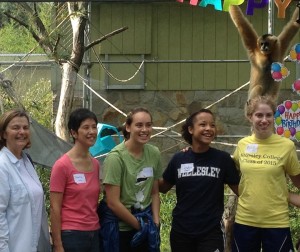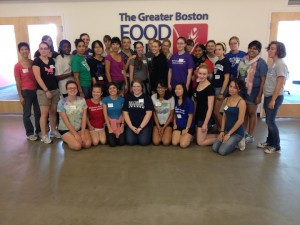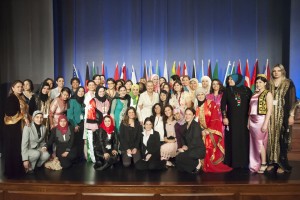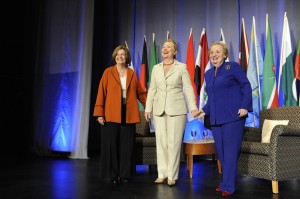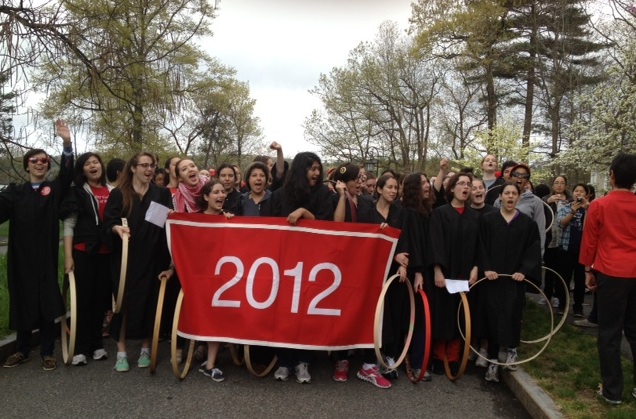In my Convocation address earlier this month, I challenged Wellesley students, faculty, and staff to engage in great conversations—conversations that promote the exchange and exploration of ideas and the philosophies underlying those ideas.
This week, we had a wonderful opportunity to do just that when journalist, scholar, and political commentator E. J. Dionne delivered the 2012 Wilson Lecture. Dionne’s lecture, “Our Divided Political Heart and the Election of 2012,” addressed the tensions between Americans’ love for individual freedom versus our desire for community and the many manifestations of this tension: e.g., government versus the marketplace, local versus national.
Whether or not one shared Dionne’s politics or beliefs, last night’s lecture—and, specifically, the Q&A session after the lecture—was an opportunity to engage in the type of great conversation that I spoke of at Convocation. Members of the audience didn’t always agree with Dionne. Indeed, he welcomed—and even seemed to enjoy—dissenting points of view. It is clear that everyone left the lecture with a broader view of American politics. And that, I believe, is what makes the Wilson Lecture, and engaging in great conversations, so powerful.
